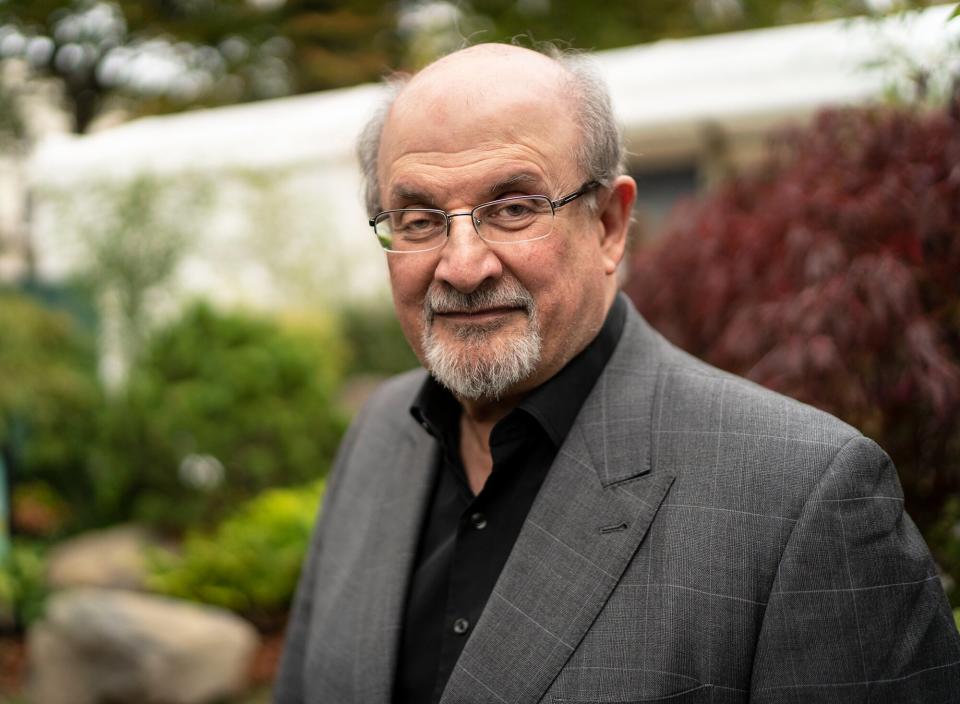Iran Denies Involvement in Salman Rushdie Attack, Says Author Brought It upon Himself

David Levenson/Getty Salman Rushdie
The Iranian government is denying any involvement in Friday's attack of author Salman Rushdie, who was stabbed in Chautauqua, New York, during a public appearance. Instead, the country says the writer himself is to blame for the incident, which occurred when a man dashed onto a lecture stage and attacked Rushdie while he was being introduced at a literary festival at Chautauqua Institution.
"Regarding the attack on Salman Rushdie, we do not consider anyone other than [Rushdie] and his supporters worth of blame and even condemnation," Iranian Foreign Ministry spokesman Nasser Kanaani said in a news conference.
Kanaani continued, per CNN (which cited Iranian state media): "We have not seen anything else about the individual that carried out this act other than what we've seen from American media. We categorically and seriously deny any connection of the assailant with Iran."
RELATED: Salman Rushdie Attacked on Stage in New York
The statement comes three days after male suspect attacked Rushdie and an interviewer — who suffered a minor head injury — on stage last Friday, according to a press release from state police.
For more on Salman Rushdie, listen below to our daily podcast PEOPLE Every Day.
Rushdie suffered an apparent stab wound to the neck and was transported to a hospital by helicopter, the release read. Rushdie's agent did not immediately respond to PEOPLE's request for comment, but told USA Today that the author has been taken off a ventilator and that his "condition is headed in the right direction."
CNN reports that several conservative newspapers in Iran are celebrating Rushdie's attack, with one writing, "A thousand bravos, a hundred God blesses," to his attacker.
In a news conference Friday, New York police announced a suspect — identified as 24-year-old New Jersey resident Hadi Matar — saying he had been arrested and charged with attempted second-degree murder and second-degree assault. Matar has since entered a not guilty plea, The Guardian reports.
RELATED: What to Know About Salman Rushdie's 'Satanic Verses' Controversy
Rushdie, an Indian-born British writer, rose to global prominence in 1989, when his book The Satanic Verses was condemned by Iranian leader Ayatollah Rullolah Khomeini.
Khomeini issued a fatwā, or religious ruling, which put a bounty of several million dollars on Rushdie's head, sending him into hiding for nearly a decade after.
At the time the fatwā was issued, Rushdie, himself Muslim by birth, said to Britain's Press Association, ''It is not true this book is a blasphemy against Islam. I doubt very much Khomeini or anyone else in Iran has read the book or anything more than selected extracts taken out of context.'' He became an outspoken advocate for free speech as a result of the event.
Never miss a story — sign up for PEOPLE's free daily newsletter to stay up-to-date on the best of what PEOPLE has to offer.
Eventually, though, Rushdie moved to the U.S. and began reentering public life, and in 1998 the Iranian government said it would no longer enforce the fatwā, although it remained active.
CNN reports that in 2017, Iran Supreme Leader Ayatollah Ali Khamenei reaffirmed the religious edict and, in 2019, tweeted that the fatwā was "solid and irrevocable."

 Yahoo Movies
Yahoo Movies 